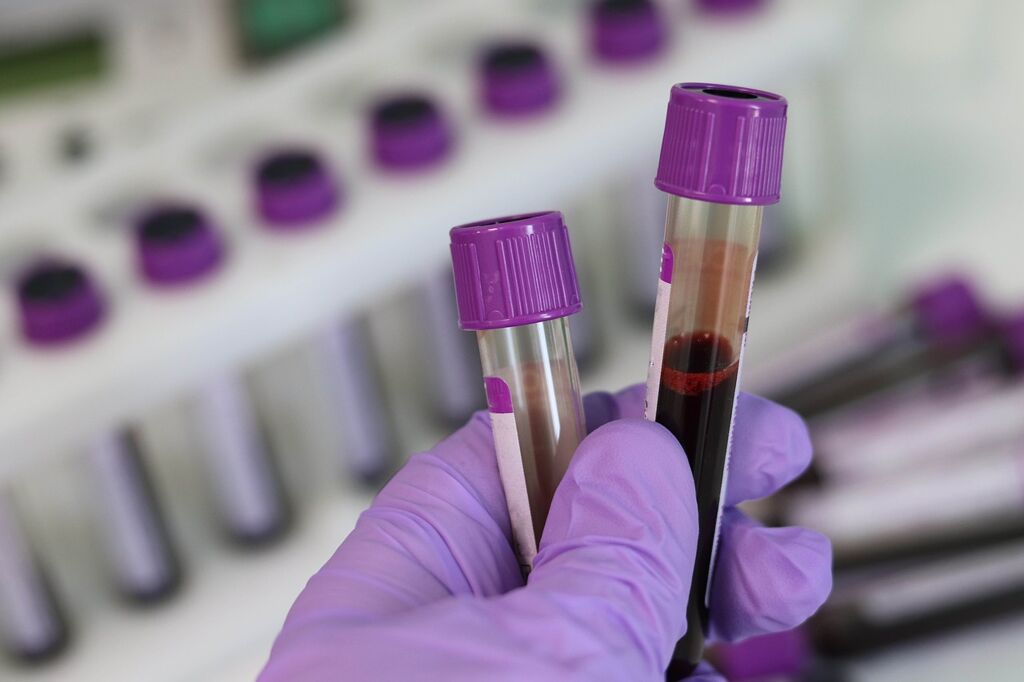Testing for Bartonella

How to Test for Bartonella: a Lyme Co-Infection
In this blog, we will look at Bartonella testing. You will learn:
- What Bartonella is and how it compares to Lyme Disease
- How to test for Bartonella
- Which tests are reliable for Lyme Disease and its co-infections
What is Bartonella?
Bartonella is a bacterium that causes the disease Bartonellosis. It can infect humans and animals including cats and dogs, and cause Bartonellosis. In recent years, Bartonella infections are reported to be on the rise (Álvarez-Fernández A, 2018).
What we call the Bartonella bacteria is actually approx. 15 different bacterial species (Columbia Univ., 2022). 38 different Bartonella species have been detected in humans and animals and 13- 15 Bartonella species cause disease in humans (Álvarez-Fernández A, 2018). Three species are thought to be responsible for the majority of Bartonella illness: Bartonella bacilliformis, Bartonella quintana and Bartonella henselae (Álvarez-Fernández A, 2018).
We cover symptoms of a Bartonella infection in our blog here.
Is Bartonella the Same as Lyme Disease?
Bartonella is a co-infection of Lyme Disease. A Lyme Disease co-infection is when a person is simultaneously infected with Lyme Disease and one or more of the other vector-borne diseases. Co-infections may actually be more common than a single infection. A co-infection may explain why some people with Lyme remain chronically ill, even after being treated for Lyme Disease.
How is Bartonella Diagnosed?
Clinical symptoms of Bartonella can be nonspecific (Columbia Univ., 2022). Studies show that a Bartonella infection is not always pathogenic. Healthy people may test positive for Bartonella but not recall having a Bartonella-like infection. (Columbia Univ., 2022). A test might help to confirm the diagnosis.
It can be tricky to diagnose Bartonella as some tests may be negative one time and then positive the next time (Lymedisease.org, 2022). A skilled Functional Medicine practitioner needs to look at the full picture including symptoms, time spent with animals or vector-borne insects and the testing results.
Which Tests are Used to Diagnose Bartonella?
There are different types of tests available to help confirm a Bartonella diagnosis. They are:
- ImmunoBlots & Western blots
- IFA or Immunofluorescent Assay
- ELISPOT or Enzyme-Linked ImmunoSpot
- PCR or Polymerase Chain Reaction
- FISH or Fluorescent In-Situ Hybridization
First, let’s look at some definitions to understand the different types of testing:
What are Antibodies?
Antibodies are proteins. They are also called immunoglobulins. They are produced by the immune system. When an unwanted foreign substance enters the body, antibodies remove it. Antibodies attach to the antigens or foreign substances, such as bacteria, fungi, viruses, allergens and toxins. They bind to the foreign substances and eliminate them. Antibodies are produced by B cells, which are specialized white blood cells.
Many of the Lyme and Lyme co-infection tests are based on identifying antibodies to Lyme-related pathogens.
There are 5 different types of antibodies; IgG, IgM, IgA, IgD and IgE. They are located in different parts of the body and have different functions.
- IgG: This is 70-75% of all immunoglobulins and is the most common antibody type. IgGs are found in blood and tissue fluids. They protect against viral and bacterial infections.
- IgM: IgM antibodies are the first line of defense against infections in immune regulation. They are found in the blood and lymph system.
- IgA: IgAs protects against ingested and inhaled pathogens. They are found in mucous, saliva, tears, breast milk and intestinal fluid.
- IgD: IgDs are found on the surface of B cells. Their exact function is unclear, but they are thought to support B cells and activate basophils and mast cells, which are other types of immune cells.
- IgE: IgE antibodies help to fight allergic reactions and protect against parasitic worms. IgEs cause mast cells (a type of white blood cell) to release histamine and other chemicals into the bloodstream. They are found mainly in the skin, lungs and mucus membranes.
To Read About Blog Topic, Scroll Down
Want To Work With Our Clinic?
Do you have a chronic or mystery illness that no one has been able to help you with? Are you simply wanting to re-connect with a healthier version of yourself? It’s Time To Finally Feel Better!
- What are the different Bartonella Tests?
- The Immunoblot
The Immunoblot test is used in molecular biology to detect proteins. It looks for specific proteins (or antibodies) in a blood sample. It is used to identify antibodies and diagnose diseases like HIV, Lyme Disease & Lyme co-infections, mad cow disease and others (PEDIAA, 2019).
The ImmunoBlot looks specifically for IgM and IgG antibodies to Bartonella. The current immunoblot tests for a few different Bartonella species, including Bartonella henselae, B. quintana, B. elizabethae and B. vinsonii. The Bartonella ImmunoBlot test results should be looked at in conjunction with clinical symptoms and any other evidence that helps to diagnose a Bartonella infection.
The immunoblot test looks at different pure proteins on the test strips and at the precise amounts in specific positions. This form of IgM and IgG testing has a higher accuracy than older technologies. It is the gold standard in infectious disease testing due to its superior sensitivity and specificity (Igenex, 2022).
- The Western Blot
The Western blot test is also an immunoblot test using the same immunoblotting technique to identify antibodies (PEDIAA, 2019). There is no significant difference between the immunoblot and western blot tests. Immunoblot is the accurate name for the test because it uses the immunoblotting technique (PEDIAA, 2019).
Western blot/ immunoblot tests seem to have higher specificity for Bartonella than other types of tests (Columbia Univ., 2022). High specificity means there are fewer false negative results.
- The IFA Test
The immunofluorescent antibody or IFA test is another blood test for Bartonella. It also looks to identify IgM and IgG antibodies to the Bartonella bacteria.
It is not the most reliable test. False negatives can occur. One study looked at people who tested negative by IFA test. They then had a PCR test. Positive PCR test results for Bartonella were found in 30% of the patients who tested negative by IFA, showing the IFA had given a false negative result (Columbia Univ., 2022). If someone has symptoms of Bartonella and a negative IFA test, they should get a PCR test to be sure.
The issue with reliability in the IFA is cross-reactivity. Cross reactions are reactions that happens when the proteins in one substance look like the proteins of another substance. These can happen in IFA tests. For example, the IgM and IgG antibodies to the Bartonella bacteria may cross react with antibodies to Coxiella burnetti, Chlamydia and certain Rickettsial infections. This means the IFA test is not correctly picking up the right antibodies for Bartonella and is therefore not very specific (Columbia Univ., 2022).
- The ELISPOT Test
The Bartonella Enzyme-Linked ImmunoSpot or ELISPOT test looks for T cells, a type of white blood cell of the immune system, that react to specific antigens in vitro. Antigens are toxins or other foreign substances which trigger an immune response in the body, especially that of making antibodies.
The ELISPOT method can detect and monitor cellular immune responses to specific antigens. It shows T cells to Bartonella-specific antigens, including Bartonella henselae, B. quintana, B. elizabethae and B. vinsonii. Each spot that develops in the test is a single reactive cell.
This test has good specificity for some Bartonella species; B. henselae, B. quintana, B. elizabethae and B. vinsonii (Igenex, 2022). It can help diagnose very early and/or late Bartonella infection. The test should be done if someone is showing symptoms of Bartonella.
- The PCR Test
PCR or polymerase chain reaction is a sensitive molecular test used to detect microbes. It identifies the genetic material from a specific organism, like bacteria or viruses. The test can find the presence of a microbe if the patient has the microbe at the time of the test. The test could also detect fragments of microbe even after the person is no longer infected.
Bacterial PCR is successfully used to diagnose various infections (endocarditis, intra-amniotic infections and meningitis) when bacterial culture has failed.
The Bartonella Polymerase Chain Reaction (PCR) test detects B. henselae-specific DNA in whole blood and/or cerebrospinal fluid. PCR to identify B. henselae is a more advanced technique that has been recently used for diagnosing Bartonella (Ksiaa I, 2019).
The DNA of various Bartonella species can be amplified by polymerase chain reaction in blood, spinal fluid and tissue. The PCR test generally has a high specificity and sensitivity. Given the cross-reactivity of the Bartonella antibody tests, a PCR test may be a more reliable test to diagnose a Bartonella infection (Columbia Univ., 2022).
However, when some infections or pathogens become latent, there may be PCR negative with Antigen positive. It is unclear whether this means there is not an infection that is active if PCR is not present. In the clinical experience of providers at Medicine with Heart, there seems to be symptom match and treatment response in many cases of antibody positive with PCR negative. As such, there is a suspicion that this infection may move largely out of the blood and into other tissues or areas of the body where it is hard to detect the PCR. As such, at Medicine with Heart we tend to use a combination of antibody together with PCR testing.
- The FISH Test
The Bartonella Fluorescent In-Situ Hybridization or FISH test detects ribosomal RNA of the Bartonella bacteria directly in a blood smear. The test has a high specificity due to the nucleic acid probes. Nucleic acid probes are used in studies to identify microorganisms and for genetic studies. In a FISH test, they bind to RNA sequences of the Bartonella pathogen.
This test identifies ribosomal RNA of bacteria from the Bartonella species. The FISH test provides a much higher specificity. A positive result indicates the presence of Bartonella bacterium, including B. berkhoffii, B. henselae, B. quintana or B. vinsonii. The presence of a bacterial organism in this blood test is a strong indication of disease (Igenex, 2022).
Given the variety of testing available for Bartonella, it is best to work with a Lyme-literate doctor. They can guide you on testing and diagnosing a Bartonella infection.
Lab testing for bartonella summary:
- Specialized labs offer more nuanced testing compared with many of the large labs
- Some of the labs used in the Medicine with Heart Clinic for bartonella testing include Vibrant Wellness, IGeneX, DNA Connexions, and Galaxy Diagnostics
- Some labs show exposure without saying if the infection is active or historic
- Combining symptom match, lab evidence for exposure, and responsiveness to treatment are the primary three elements that providers at Medicine with Heart use to evaluate bartonella in connection with chronic health concerns.
In our clinic, we are Lyme-literate doctors. We are experts at identifying root causes, testing for and diagnosing conditions like chronic Lyme Disease and Lyme co-infections. We help people to address the root causes of illness and improve their health. We treat Lyme co-infections and chronic Lyme symptoms, with both natural and pharmaceutical approaches, depending on the individual case.
** Please stay tuned for our next Blog! **
If you are a clinician wanting to learn more about treatment of Lyme Disease, please check out our clinician training programs here.
Are You Suffering From A Chronic Illness?
Does your current health situation look like this…
- Do you feel that you have tried many things and either nothing works, or the treatment does not hold?
- Have you been told that there is nothing that can be done to reverse your illness and you just need to manage symptoms?
- Does your illness impact your work, your family, your happiness and your social life?
We specialize in finding answers and solutions for complicated chronic illness when people feel like they have tried everything. If this sounds like you, book a free call with us to see if we are the right fit for your health goals.
Dr. Miles has spoken for the following organizations:
















